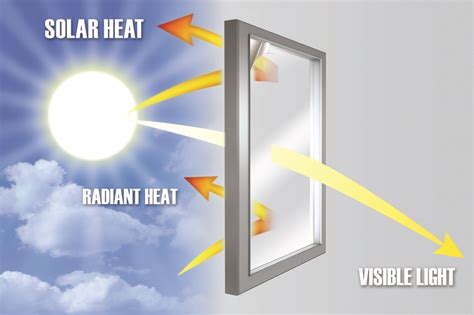The world is facing an unprecedented energy crisis, and the need for sustainable solutions has never been more pressing. One innovative approach to reducing energy consumption is the application of window films, a cost-effective and efficient solution for buildings. In this article, we will delve into the world of window films and explore their role in energy efficiency.
What are Window Films?

Window films are thin, transparent sheets of polyester or vinyl that are applied to the surface of glass windows. They are designed to block or filter out specific wavelengths of light, reducing the amount of heat that enters or leaves a building. Window films can be clear, tinted, or reflective, depending on their intended use.
Benefits of Window Films for Energy Efficiency
Window films offer numerous benefits when it comes to energy efficiency. Some of the most significant advantages include:
- Heat Reduction: Window films can block up to 99% of ultraviolet (UV) radiation, reducing the amount of heat that enters a building. This can lead to significant energy savings, especially in warm climates.
- Energy Savings: By reducing the amount of heat that enters a building, window films can help lower energy consumption. This can result in significant cost savings, especially for buildings with large glass surfaces.
- UV Protection: Window films can block UV radiation, which can cause fading and discoloration of furniture and carpets.
- Glare Reduction: Window films can reduce glare, making it easier to work or relax in rooms with large glass surfaces.
Types of Window Films for Energy Efficiency
There are several types of window films available, each with its own unique characteristics and benefits. Some of the most common types of window films for energy efficiency include:
- Low-E Window Films: These films are designed to reduce heat transfer, keeping buildings warm in the winter and cool in the summer.
- Solar Window Films: These films are designed to block UV radiation and reduce heat gain, making them ideal for warm climates.
- Reflective Window Films: These films are designed to reflect heat and UV radiation, making them ideal for buildings with large glass surfaces.
How to Choose the Right Window Film for Energy Efficiency
Choosing the right window film for energy efficiency can be a daunting task, especially with so many options available. Here are some tips to help you make the right choice:
- Assess Your Needs: Determine what you want to achieve with your window film. Do you want to reduce heat gain, block UV radiation, or reduce glare?
- Consider Your Climate: Different climates require different types of window films. For example, warm climates require films that block UV radiation, while cool climates require films that reduce heat loss.
- Check the Specifications: Check the specifications of the window film, including its UV blocking percentage, heat reduction percentage, and glare reduction percentage.
Installation and Maintenance of Window Films

Installing window films is a relatively straightforward process, but it does require some expertise. Here are some tips to help you install and maintain your window films:
- Choose a Professional Installer: Choose a professional installer who has experience installing window films.
- Follow the Manufacturer's Instructions: Follow the manufacturer's instructions for installation and maintenance.
- Clean the Film Regularly: Clean the film regularly to prevent dirt and dust from accumulating.
Common Mistakes to Avoid When Installing Window Films
Here are some common mistakes to avoid when installing window films:
- Incorrect Installation: Incorrect installation can lead to bubbles, wrinkles, and other defects.
- Insufficient Cleaning: Insufficient cleaning can lead to dirt and dust accumulating on the film.
- Using the Wrong Tools: Using the wrong tools can lead to damage to the film or the window.
Gallery of Window Films for Energy Efficiency





Frequently Asked Questions
What are the benefits of window films for energy efficiency?
+Window films can block up to 99% of ultraviolet (UV) radiation, reducing the amount of heat that enters a building. They can also reduce glare, block UV radiation, and reduce energy consumption.
How do I choose the right window film for energy efficiency?
+Assess your needs, consider your climate, and check the specifications of the window film. Choose a film that blocks UV radiation, reduces heat gain, and reduces glare.
How do I install window films?
+Choose a professional installer who has experience installing window films. Follow the manufacturer's instructions for installation and maintenance.
By following these tips and choosing the right window film for energy efficiency, you can reduce your energy consumption, lower your energy bills, and create a more comfortable and sustainable living or working space.
